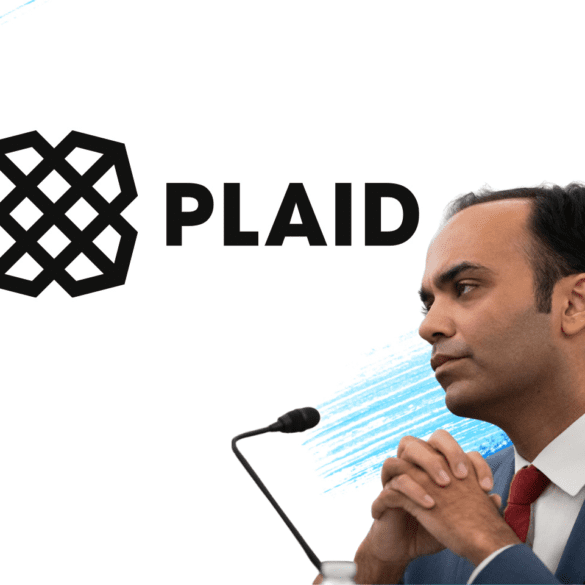After avoiding section 1033 of Dodd-Frank for 12 years, in October the CFPB announced proposals for action. Plaid now offers their advice.
Bank of America CEO Brian Moynihan says that the big bank point of view of Dodd-Frank is that the law is fine; he explained that none of the big banks are trying to touch the law and it has made the financial system safer; small banks have been pushing to roll back some of the regulations associated with Dodd-Frank because they feel it is too burdensome; the interview at the Economic Club of Washington also touches on fintech, blockchain and other bank related issues. Source.
As former director Cordray left the CFPB last week he named an acting director to minimize operational disruption in his words; the White House on the other hand thinks he meant to provoke a response from the administration; the agency now is broiled in confusion over who is the true interim leader as the White House appointed their own interim leader; Mr. Cordray is working off of language in the Dodd-Frank Act to appoint a successor, while the White House is acting on the Federal Vacancies Reform Act that gives the President authority to appoint interim leaders; each leader will have a different mandate and the confusion will need to be cleared up soon. Source.
The US Senate's Banking Committee majority leader says a full reform of Dodd-Frank is unlikely but the Committee will seek to pass targeted reforms; the Banking Committee majority leader also sees larger regulatory changes coming mainly from the independent agencies; the outlook means the Financial Choice Act led by House Financial Services Committee Chairman Jeb Hensarling is also unlikely to be passed in the Senate; "The Choice Act is our omnibus legislation, but we will also reintroduce its component bills," says Hensarling; a previous executive order from President Trump which halts new federal regulations or requires regulators to repeal two rules for every new one issued is also slowing the regulatory process. Source
Financial reform is an uncertain topic for the fintech industry; Digiday talked with attendees at LendIt USA about their thoughts on the Trump administration's proposed regulatory reform; generally, participants reported that they believe the reform could increase interest from banks in partnering with fintech companies since deregulation gives them more flexibility for credit product expansion. Source
Dodd-Frank requires banks to disclose information about employee wages and the data shows a mixed bag for banks; banks like Goldman Sachs lie on the high end of the pay scale while small banks in locations like Houston are at the bottom of the spectrum; what the data also shows is banks are finding it hard to compete with big tech firms for talent as companies like Google, Facebook and Amazon tend to pay premium wages; wages overall look to be rising as lower skill, lower wage jobs are becoming less frequent across the industry. Source.
While the recent revisions to the tax code were done along party lines, the newly proposed updates to Dodd-Frank have the backing of a bipartisan group of legislators; the bill is looking to target banks in the $50bn to $250bn range who many feel have been disproportionately effected by the 2010 Dodd-Frank law; changing the definition of the banks from systemically important financial institutions or SIFI’s will free up the banks from certain requirements; while their is optimism for a deal that crosses party lines, Congress has a ways to go as they look to get this done later in the month. Source.
Representative Patrick McHenry says Dodd-Frank reform is not likely to make it to the House of Representatives until June or July; he is confident in major changes for the regulation from the House of Representatives however he foresees opposition from Senate democrats; in an interview with WSJ Pro Financial Regulation he also provided his insight on a range of regulatory aspects which could be integrated into legislation in various ways. Source
The House Financial Services Committee has scheduled a hearing for March 28 with a panel of banking executives to gain greater insight into how Dodd-Frank has affected lending in the banking industry; the House Financial Services Committee works within the House of Representatives and is the main group governing regulation of the financial services industry; the hearing will help to gain insight into the effects on bank lending from Dodd-Frank which will help in directing Trump administration reform; the House Financial Services Committee is led by Jeb Hensarling who has previously reported the Financial CHOICE Act which is presented as a replacement for Dodd-Frank. Source
The current market perspective is that banks aren't lending because of regulatory constraints; President Donald Trump even says that many of his friends in the business world would like to borrow money but can't because of regulatory restrictions; while market statistics show that banks are lending and have been doing so at an increasingly higher rate, it is true that there are constraints; however insight from the New York Times suggests that efforts to deregulate could be futile and that with lower capital requirements banks would instead prefer to use capital for increasing dividends and stock buybacks. Source


